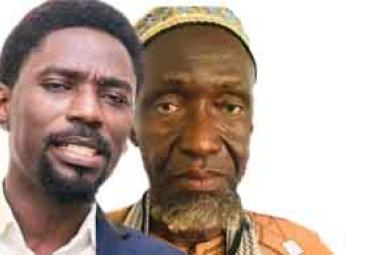By Aji Fatou Jammeh
GAMNA
Ramadan is considered one of the holiest months of the year for Muslims.
In Ramadan, Muslims commemorate the revelation of the Qur’an, and fast from food and drink during
the sunlit hours as a means of drawing closer to God and cultivating self-control, gratitude, and
compassion for those less fortunate. It is a month of intense spiritual rejuvenation with a heightened
focus on devotion, during which Muslims spend extra time reading the Qur’an and performing special
prayers. Those unable to fast, such as pregnant or nursing women, sick or elderly people, and children,
are exempt from fasting.
Moreover, being the 9th month of the Islamic calendar, which is based on a 12-month lunar year of
approximately 354 days, Ramadan requires Muslims to do a fast of between 11 and 16 hours depending
on the time of year for a period of 29 to 30 days. It entails forgoing food and drink, and if married,
abstaining from sex during daylight hours.
Furthermore, for Muslims, Ramadan is a time for self-restraint, both physically and spiritually, by
avoiding any negative acts such as gossiping, lying, or arguing. Also, Muslims welcome Ramadan as an
opportunity for self-reflection and spiritual improvement and as a means to grow in moral excellence. In
as much as it is religious, the period is also a social event when Muslims invite each other to break fast
together and meet for prayers at the mosque.
In the Gambia, people start preparing for Ramadan at least a month or a few weeks before it begins.
Families start buying enough food items to last them for the whole month. The well-to-do do extend
help to the poor and needy by providing them with food, mainly relevant for iftar, because it is believed
to be a month of caring and sharing and that any act of worship is multiplied in rewards.
In addition, individuals or companies do organise daily or weekly iftars for the Muslim communities.
Some charities and groups of individual volunteers would prepare Iftar and place it at strategic places,
mainly for commuters and people who cannot reach home in time to break their fast there, but also for
people who struggle to feed themselves. Others prepare iftar and take it to hospitals for the patients
and people who usually guide relatives to hospitals. The offer of food extends to even non-Muslim
neighbours. This is all anchored on the strong conviction that Islam is all about caring and sharing.
Usually, three meals are prepared by families: one for Iftar, another for dinner, which is usually served
right after the Taraweh prayer, and one for suhoor, in readiness for the next day’s fasting.
The environment
Islam is the main religion in The Gambia, and 95% of the population is thought to follow this faith.So,
Islam has had an effect on Gambia's culture, society, and politics throughout its history, and it still
does.Thus, during Ramadan, it has always felt like the whole country is Muslim. Virtually everybody,
including non-Muslims, puts away the elaborate social events that are common after Ramadan. There is
serenity and acts of Ibada all around and everywhere.
The Taraweh
The Taraweh (a nightly optional congregational prayer done right after the Isha’a prayer) is one big
exercise that Gambian Muslims actively look forward to and participate in. While some families prefer
doing the congregation at home with mostly the family head leading the prayers, a lot more go to the
mosque for the prayers. Congregational prayers are also held in almost every street where there are no
mosques.
Laylatul Qadr
The last ten days of the holy month do see even more intense worship of Allah by the Muslim
community. This is because the Laylatul Qadr (the Night of Power)—one night in which worship is worth
a thousand years of worship) is believed to be within these last ten days of Ramadan. The tahajud (late-
night prayers) is the most common way of observing and searching for the night. However, the 27th
night of Ramadan is widely believed in The Gambia to be the likeliest in which the Laylatul Qadr falls,
and so aside from the Tahjud, a lot of people, especially the most conservative Muslims, would mark it
with group Qur’anic recitations, conferences, and other forms of organised religious forums until Fajar.
After the breaking of the fast in the evening on Laylatul Qadr, children and even elders go from house to
house, praying, and they will be given presents like biscuits, sweets, and money in return.
The Eid-ul-Fitr
Eid ul-Fitr is the culmination of the 29 or 30 days of fasting and intense worship of Allah during
Ramadan. It is locally called Koriteh and it is moment of joy and merry–making amidst supplications to
Allah.
On the day of Eid ul-Fitr, commonly called ‘Koriteh’, people, mostly men and children, dress in new
traditional attire to attend the two-rakat prayer, and afterwards, family, friends, and loved ones visit,
pray, and ask for forgiveness from one another. After lunch, the young ones, mostly dressed in new
clothes, would trek and visit neighbours, nearby communities, or family members elsewhere, asking for
gifts.
lunch time in the village, households take their lunches to the ‘Bantaba’ (the village square) for a
communal get-together. The villagers eat and drink together, pray to one another, and ask for Allah’s
forgiveness.
Religious tolerance
The Gambia is widely known to be a highly religiously tolerant society. Muslims and Christians, virtually
the only two religions that exist in the country, do interact and mingle like people belonging to the same
religion. The two communities do celebrate the religious feasts of each faith as one. During Ramadan,
most non-Muslims prefer not to eat in public during the day out of respect for Ramadan and the
Muslims.
On the day of Eid, our Christian brothers and sisters are invited to join us in the celebrations. Some
Muslims offer food to their Christian neighbours.






